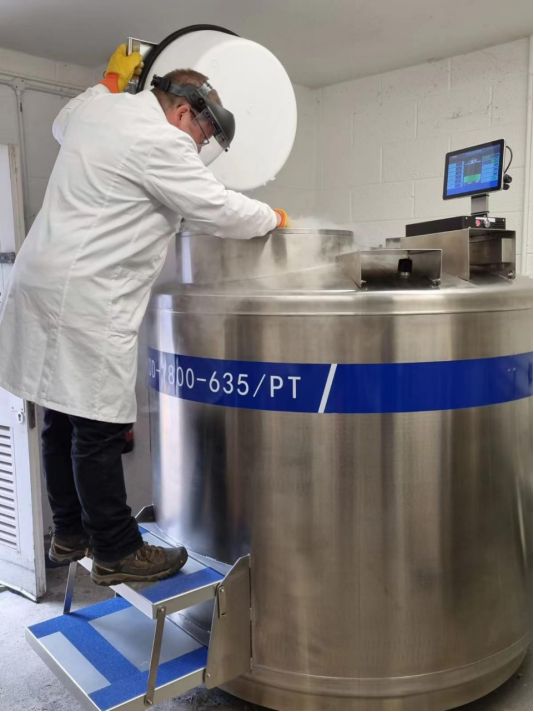Haier Biomedical recently delivered a large cryogenic storage system to support multiple myeloma research at the Botnar Institute for Musculoskeletal Sciences in Oxford. This institute is Europe's largest center for studying musculoskeletal conditions, boasting state-of-the-art facilities and a team of 350 staff and students. The cryogenic storage facility, a part of this infrastructure, attracted the Oxford Centre for Translational Myeloma Research, aiming to centralize its tissue samples.
Alan Bateman, a senior technician, oversaw the extension of the cryogenic facility to accommodate the new project. Haier Biomedical's Liquid Nitrogen Container – Biobank Series YDD-1800-635 was chosen for its vast capacity of over 94,000 cryovials. The installation was seamless, with Haier Biomedical handling everything from delivery to ensuring safety protocols.
“Everything has worked perfectly since it has been up and running, from the autofill and carousel to the one-touch defogging feature. Importantly, we are confident that sample integrity is all but guaranteed, with effortless 24/7 monitoring via the touchscreen user interface. It has certainly been a step up from the old-fashioned push button instruments we are used to. There is also better security, as only certain individuals can change vital parameters – such as fill rate, level, and temperature – meaning most researchers can only access samples. This is especially important in helping us comply with the requirements stipulated by the Human Tissue Authority, UK’s independent regulator of human tissue and organ donations.”
The Biobank Series offers advanced features such as precise monitoring, enhancing sample integrity and complying with regulatory standards. Users appreciate its user-friendly interface and security features, ensuring only authorized personnel can access vital parameters. Additionally, small design details like quality racks and ergonomic handles improve usability.
Despite doubling storage capacity, liquid nitrogen usage has only increased marginally, highlighting the system's efficiency. Overall, the Oxford Centre for Translational Myeloma Research team is delighted with the system, anticipating broader usage beyond the current project.
Post time: May-24-2024














